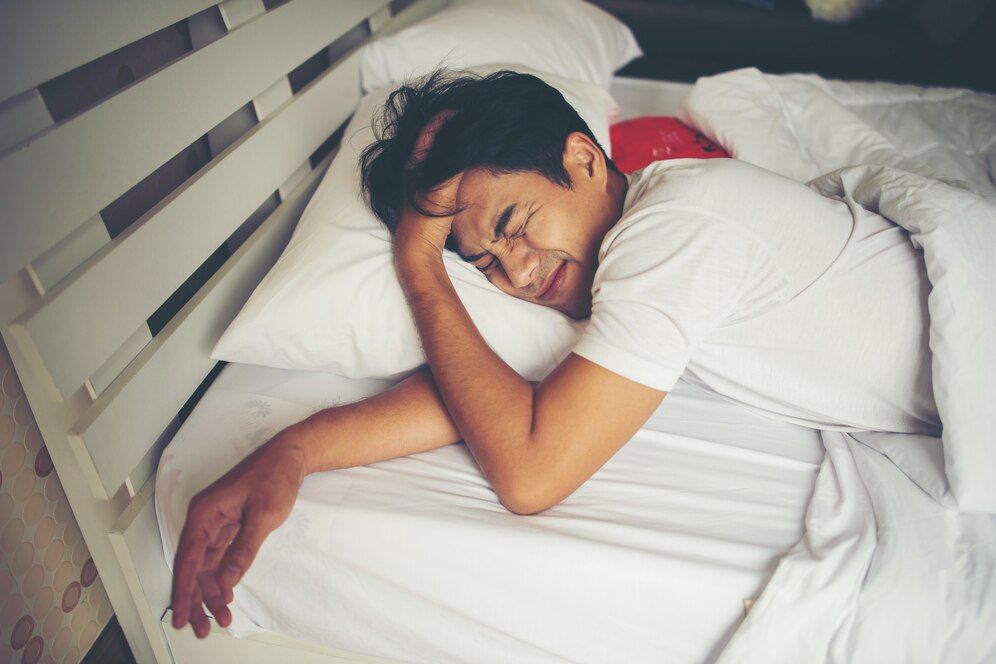The Connection Between Sleep Apnea and Insomnia: Symptoms, Causes, and Treatments

Sleep apnea and insomnia, two common sleep disorders that often coexist, adversely impact the quality of sleep and overall well-being. Sleep apnea, a condition characterized by repeated pauses in breathing during sleep, affects millions of adults and can lead to severe health consequences if left untreated.
Insomnia, on the other hand, is a sleep disorder marked by difficulty falling asleep, staying asleep, or waking up too early, causing fatigue and diminished alertness. Based in Harrisburg, PA, PA Dental Sleep Medicine specializes in providing comprehensive treatment options for sleep apnea, insomnia, snoring, and teeth grinding, helping patients in Pennsylvania Dental Sleep Medicine achieve improved sleep quality and enhanced general health.
In this article, we will delve into the complex relationship between sleep apnea and insomnia, explaining the overlapping symptoms and mutual causes, which make diagnosing and treating these disorders particularly challenging.
Furthermore, we will outline the available treatment options that can alleviate sleep apnea and insomnia, promoting restful sleep and overall well-being. Our doctor dental sleep medicine team is committed to helping patients understand the intricacies of sleep apnea and insomnia, guiding them on their journey towards healthier, more restful sleep.
If you're experiencing symptoms of sleep apnea or insomnia and seek professional guidance, treatment options, and support, our dedicated dental sleep medicine team in Pennsylvania Dental Sleep Medicine is here to help.
Schedule a consultation today to discuss your sleep concerns, learn more about the connection between sleep apnea and insomnia, and embark on a journey towards improved sleep quality and enhanced overall well-being.
Overlapping Symptoms of Sleep Apnea and Insomnia
Sleep apnea and insomnia frequently coexist, and their symptoms often overlap, making it difficult to distinguish between the two conditions. Some common overlapping symptoms include:
- Awake at Night: Both sleep apnea and insomnia sufferers may exhibit restless sleep patterns and experience difficulty staying asleep throughout the night.
- Daytime Fatigue: Individuals with either condition can struggle with daytime fatigue, drowsiness, and a lack of focus due to disrupted sleep.
- Mood Changes: Insufficient sleep caused by sleep apnea or insomnia can result in irritability, depression, and anxiety.
- Cognitive Impairment: Poor sleep quality from sleep apnea or insomnia may lead to difficulties in concentration, memory, and decision-making.
Causes and Triggers of Sleep Apnea-related Insomnia
The link between sleep apnea and insomnia can be attributed to several factors. The interrelationship between these sleep disorders can result from:
- Sleep Fragmentation: Sleep apnea events, such as pauses in breathing, can disrupt the sleep cycle and contribute to difficulty falling back asleep, leading to insomnia.
- Anxiety: Individuals with sleep apnea might develop anxiety about falling asleep due to fears related to breathing disruptions, making it challenging to rest.
- Physical Discomfort: The distress caused by sleep apnea symptoms, such as snoring and gasping for air, can exacerbate problems with falling and staying asleep.
- Sleep Position: Certain sleep positions, such as lying on one's back, are associated with worsening sleep apnea symptoms, which can make it more difficult for individuals to find a comfortable position for sleep, contributing to insomnia.
Diagnosing Sleep Apnea and Insomnia
Accurate diagnosis of sleep apnea and insomnia is crucial for devising an effective treatment plan. The diagnostic process may include:
- Comprehensive Medical and Sleep History: A thorough discussion about an individual's medical history and sleep patterns can provide invaluable insights for identifying potential underlying causes of sleep apnea and insomnia.
- Sleep Study: A sleep study, or polysomnogram, may be recommended to monitor and record sleep patterns, breathing, and other vital signs throughout the night, providing valuable data to diagnose sleep apnea.
- Sleep Diary: Patients might be asked to maintain a sleep diary, tracking factors such as bedtimes, wake times, and disruptions, which can help identify patterns and determine the presence of insomnia.
Treatment Options for Sleep Apnea and Insomnia
Effectively addressing sleep apnea and insomnia requires a multi-faceted approach, considering the root causes and specific patient needs. Some common treatment options include:
- Oral Appliance Therapy: For mild to moderate sleep apnea cases, custom-fitted oral appliances can be used to reposition the jaw and tongue, maintaining an open airway to prevent sleep apnea events and alleviate related insomnia.
- Continuous Positive Airway Pressure (CPAP) Therapy: For more severe sleep apnea cases, CPAP therapy's continuous flow of air can help keep the airway open, minimizing disruptions in breathing and potentially improving insomnia symptoms.
- Cognitive Behavioral Therapy for Insomnia (CBT-I): Although not covered in PA Dental Sleep Medicine's offerings, CBT-I is a well-established, evidence-based therapy that can help address insomnia-related thoughts and behaviors, promoting better sleep patterns.
- Sleep Hygiene Practices: Encouraging good sleep hygiene, by maintaining consistent sleep and wake times, creating a comfortable sleep environment, and reducing exposure to screens before bedtime, can help improve sleep quality for individuals with sleep apnea and insomnia.
Conclusion
The complex relationship between sleep apnea and insomnia can make diagnosing and treating these disorders particularly challenging. However, with proper guidance from dental sleep medicine professionals and a tailored treatment approach addressing the root causes and individual patient needs, successful management of both conditions is possible. By treating sleep apnea and insomnia effectively, patients can achieve restful sleep, improved daytime functioning, and better overall health.
Are you struggling with sleep apnea or insomnia and need help from reliable
sleep apnea doctors in Harrisburg, PA? Look no further than Pennsylvania Dental Sleep Medicine. Our team of dedicated dental sleep medicine doctors are here to provide you with the guidance, treatment options, and support you need to improve your sleep quality and overall well-being. Schedule a consultation with us today to discuss your sleep concerns and learn more about the connection between sleep apnea and insomnia. Contact us now.


